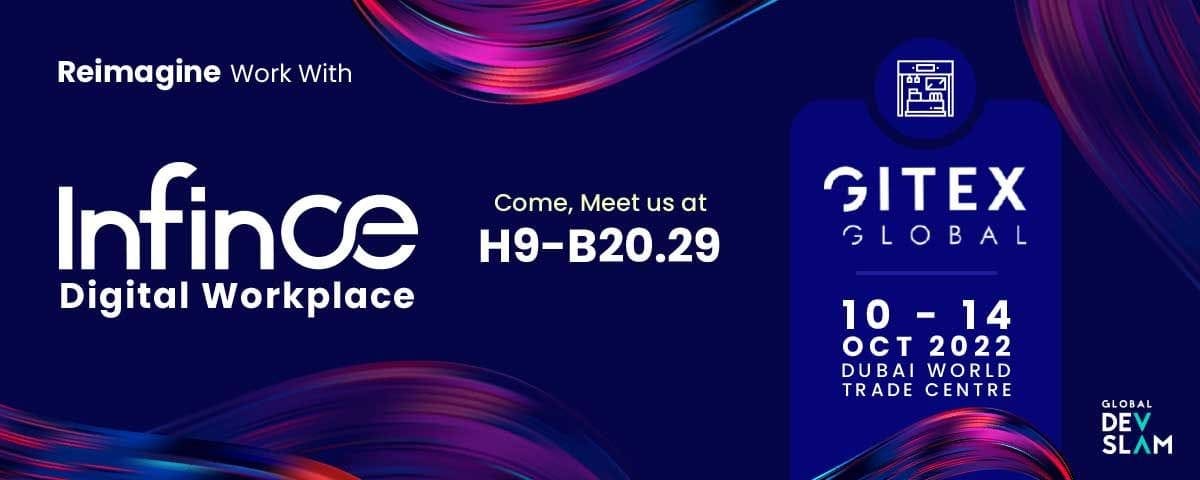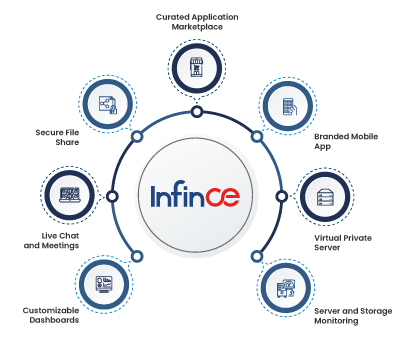Remote work is taking a front seat, and companies need to shift from traditional workplace norms to an on-demand workforce that is changing the business world completely. To make this shift, companies need a digital workplace solution. These integrated and intelligent remote work platforms provide exciting new ways to increase employee engagement, optimize costs, and create an agile workforce.
What is a digital workplace? On the face of it, a digital workplace may seem like a virtualized proxy of the in-person office space, but in today’s competitive and technology-enabled world, it needs to do so much more.
A digital workplace platform offers cloud-native technologies that improve the company’s bottom line and lead to better team collaboration. It also leverages digital tools that help companies achieve scale while reducing costs.
Deloitte describes the digital workplace as encompassing “all the tools and technologies people need to get their work done in today’s workplace – both in operation and the ones to be implemented.” Deloitte’s report outlines one characteristic that makes a great digital workplace solution. A good digital workplace platform connects the employee experience with business outcomes.
Read more: Why Does Employee Well-being Matter in a Hybrid Work Model?
Why Your Company Needs a Digital Workplace Solution
Digital workplace solutions give companies a competitive advantage by making them agile, flexible, and providing them with a centralized management view. In the shift to a remote work culture that is now the new normal, companies need to go beyond generic tools for remote work. Instead, they need to look at a digital workplace solution that integrates processes and leverages digital technologies to help companies improve their profits. There are many reasons why your company must rely on a digital workplace solution.
- Provides real-time collaboration and productivity tools: Productivity and collaboration tools are crucial for remote and hybrid work. Productivity tools like smart email management tools, collaboration channels, and task management apps can help companies complete more work in less time and strategically plan their workloads and business strategies.
- Improves employee experience: Digital workplace solutions put employees at the center of their design, making team members feel engaged even though they work remotely.
- Offers unified custom dashboards: A good digital workplace solution provides tools like interactive, data-rich dashboards that give a unified view of all the end-to-end processes.
- Reduces costs and drives profitability: Digital workplace solutions reduce organizational and management costs. They can increase productivity, which impacts the bottom line. This survey by Gartner reveals a 44% rise in employee productivity. Thanks to collaboration tools.
- Promises transparency and data security: With their business dashboards that provide an additional layer of data security, digital workplaces offer better transparency and prevent data theft.
- Drives innovation and scalability: Digital workplace technologies will drive innovation by enabling companies to hire from around the world. They will also help companies scale and increase productivity due to their feature-rich collaboration tools.
Read more: How to Keep Your Remote Teams Connected
The Best Ways to Improve Your Digital Workplace Management
In the aftermath of the pandemic, remote work is the new reality of an on-demand workforce. A company can have many productivity and collaboration apps but without a digital workplace management strategy and platform to unify them all, there can be information and collaboration overload.
Here’s how you can improve your digital workplace management.
- Prioritize a single pane of glass view: Digital workplace management brings this unified view of the entire company’s workflows. A central point of control is important. With it, you can leverage advanced levels of automation to make collaboration better and faster. Unified dashboards lead to faster workflows and greater scale.
- Aim for seamless integration: Digital workplace solutions are invaluable only if they are completely integrated into the company’s overall business processes. Digital workplace management helps companies achieve this single point of integration.
- Choose smarter data analytics: To improve your digital workplace management, focus on actionable data and people analytics. Intelligent collaboration tools can give you real-time updates about projects and employee performance. It is not just important to have data but to mine and utilize it immediately. Use custom dashboards to track performances and processes. These dashboards can also give you immediate access to company-wide data from APIs, apps, and CSV files.
- Look for personalized digital solutions: Choose digital workplace solutions that suit your company and its specific requirements. This is where digital orchestration platforms come in. They blend into your company’s existing workflow and optimize it instead of disrupting processes. A digital orchestration platform helps you integrate software and solutions from various SaaS vendors to manage and scale your digital workplace.
- Pick the right tools: Choose digital workplace tools that drive higher rates of automation and collaboration. Digital workplace solutions should be designed to drive end-user adoption, leading to an agile digital workplace. Look for rich interactive collaboration tools like live chats, multiple screen sharing, breakout rooms, and shareable meeting links. Go with productivity apps with excellent project management capabilities and tools to track performance and tasks.
- Give importance to the employee experience: Employee experience is central to the success of your digital platform. Opt for voice and video calls to build stronger workplace connections so that employees don’t miss face-to-face interactions. Employees value flexibility in remote work and tools like live chats, collaboration channels, and intranet platforms that keep social interactions alive.
- Choose a centralized IT management: When your company runs multiple applications and has to juggle between many sign-on, work becomes tedious and difficult to manage. With a single sign-on and an efficient third-party tool integration, centralized IT management unifies all of the enterprise’s applications and workflows. It also increases business transparency.
With the rise of remote work, sustaining a distributed workforce and empowering it with a solid digital workplace management solution is important. Infince integrates online and offline communications by providing all-time access from anywhere in the world. While most digital workplace tools offer a variety of tools, some of them like Infince, are purpose-built to provide unified reporting of company workflows and targets. Infince also provides companies with excellent data accessibility and multiple modes of effective collaboration. Its features include customizable dashboards built to mine data and generate metrics. Want to create powerful and profitable digital workplaces that help you race ahead of the competition?











